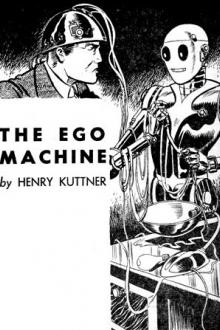The Boy Who Fell from the Sky by Jule Owen (read more books .TXT) 📖

- Author: Jule Owen
- Performer: -
Book online «The Boy Who Fell from the Sky by Jule Owen (read more books .TXT) 📖». Author Jule Owen
The car drops Mathew by the Playhouse Theatre. The same people he travelled with in the morning are standing waiting. There’s the same boat, the same ferryman, the same guard at the back, and the same boy wading in the filthy river to bring the boat in to shore.
The boat trip is slightly less unnerving the second time around. Mathew thinks it is possible to get used to anything. The people on the rooftops, their fires, and their makeshift shelters aren’t a surprise. The front-row view of the drowning ancient city isn’t so shocking.
The car and his guard from the morning are waiting for him at Greenwich. Sitting in its roomy back, Mathew sends an ETA to Leibniz as they crawl slowly up the hill, past the stuff hung to dry and the people in their tents and shacks on the common.
Mathew turns the dragons back on for light relief. They are bewildered. The last thing they remember is being in the school lobby.
As the dragons play around him, Mathew rolls out his Paper and displays the beebot design he’d worked on in class. He rotates it with his finger and makes some small adjustments. He thinks about Mr Lestrange, his lack of Nexus records, the meek way Clara’s psychotic guard retreated, the acoustic amplifier. He thinks about Clara and her parents and her fear and anger over being watched.
Closing his eyes for a moment, he sees Mr Lestrange once again through the window of the upstairs bay window in Pickervance Road. Why is he watching her? Something tells him that if he can find a way into Mr Lestrange’s house, he’ll find the answer.
A meal is waiting in the kitchen when he gets home. Leibniz has set the table. Mathew sits as a plate of food and a drink are put in front of him. O’Malley is rubbing around his legs, mewing loudly, wanting attention after being home alone all day.
Grasping his knife and fork, Mathew says, “Thank you, Leibniz. I appreciate it.”
“You’re welcome, Mathew.”
Mathew knows he is talking to a complex computer program and not a person, but it seems rude not to thank Leibniz. “I made robots today,” he says.
“I am a robot, Mathew,” Leibniz replies.
Mathew thoughtfully scrutinises his machine. He says, “I know you are. But what does it feel like to be a robot?”
But Leibniz just blinks. The light on its chest panel indicates thought cycles quickly, in the way it does when it’s crashing, and then turns red.
Mathew sighs, “Cancel conversation.” When that doesn’t work, he says, “Reboot.”
Leibniz’s lights go off. When it starts again, it immediately goes off to clean the dishes.
On the Canvas, there’s a report of a suspected terrorist attack on crops in Texas by Mexican separatists. They have destroyed hundreds of thousands of acres of specially designed drought-tolerant crops aimed at easing the latest food crisis in the southern US.
The governor of Texas is interviewed. He says, “This is a particularly cynical and evil act, given the humanitarian crisis we have here right now. But those responsible should know we will not be intimidated and will stand against them using any means necessary.”
Amongst those interviewed in the report is Minister Eben O'Hingerty, founder of the Edenist movement, whose activists were first thought to be responsible for the sabotage.
O'Hingerty says, “We are against these genetically modified crops. They are an abomination in the sight of the Lord. They are an example of the extreme arrogance of today’s scientists wanting to play God, when they know no more than children. We believe these kinds of monstrous experiments with nature will have dire consequences for all of humankind. At this time in human history, when nature is teaching us all what happens when men interfere with laws laid down by God, we should know better. But the Edenist movement operates within the law and the democratic process. We condemn this sabotage as a terrorist act and are at one with the government in standing against these separatists. We offer our full support to the police in hunting down the culprits.”
Mathew is imagining what his grandmother will say when she sees the BBC showing an interview with the leader of the Edenist movement whilst boycotting the leader of the Garden Party. He makes a mental note to ask her.
When his mother comes home, they sit in silence in the kitchen. When she asks him what he’s done all day, he starts to tell her about his trip to town and his robotics class. Normally, she would quiz him, but she just nods, gazing at her food, prodding at it with her fork.
“Mum, can I ask you something, or are you too tired to talk?”
She straightens herself, guilty. “No. Of course not. You can ask me anything.”
“How did Grandma get to Elgol?”
His mother raises an eyebrow. “Being at home alone is giving you too much time to think. But if you really want to know, she was invited to join when she was living in London.”
“She lived with us?”
“Yes, when she first came to England, she lived here for eighteen months. Don’t you remember?”
He shakes his head.
“You were little, I suppose. She was told there was a plot available at Elgol by someone she met at a Garden Party meeting.”
“She was in the Garden Party?”
“Yes, Mat, we all supported the Garden Party. Grandma, your dad, me. A long time ago.”
“You did?”
“Yes.”
“And now?”
“Things have changed.”
“You’ve changed?”
“Perhaps.”
“But not Grandma?”
“She was always a bit stronger in her views than me. But you have to remember what she went through in China.”
“What did she go through in China?”
“Drought. Famine. Riots. Awful things.”
“My car drove across the common this morning. That’s pretty awful.”
“Yes, it is. But it could be much worse.”
He struggles to imagine how. He says, “Don’t you worry, with her so far away?”
“Of course. But to be honest, I think she’s safer there than we are here.”
“Even considering what’s happened to Cadmus Silverwood and the opposition?”
“Yes, even considering that.”
Hoshi stands, and Leibniz moves in to take her plates. She extends her hand to Mathew, “Come on, we should get some sleep.”
11 The First Space War
DAY FOUR: Thursday, 25 November 2055, London
Mathew is dreaming of his father.
They are on holiday in Elgol, at the beach. It is one of those endless summer days. The heat shimmers over the sand. In the dream, he is grown, older than he is now, but his father and mother are young. The three of them are standing waist-deep in water, throwing a ball around in a circle. His mother is laughing, splashing water at his father. Mathew is happy. His grandmother is sitting on the beach with his Japanese grandfather, who’s wearing sunglasses and a business suit and is reading a paper book, even though he is dead and Mathew has never met him. His Danish grandparents are walking away along the water’s edge; their backs retreat and blur with the heat haze on the horizon.
There is someone else there too, not in sight, a stranger.
“Come and play ball,” Mathew’s father says to the stranger.
The familiar, disembodied voice says, “Carry on. I’ll watch. Don’t let me disturb you.”
There is a strange, distracting noise that doesn’t belong. It’s trying to pull him away, but he doesn’t want to leave the dream because he wants to stay with his dad. He wants to ignore the noise, wants it to go away.
Awake suddenly, eyes open, he hears it clearly. It says, “Mathew!”
It’s his mother outside his door. Not her normal morning voice. She is stressed, worried.
Something is wrong.
He climbs carefully over O’Malley, asleep next to him, clambers free of the bed, his foot catching in a sheet. He stumbles over to the door and opens it.
“What is it? What’s happened?”
His mother is pale, shocked, disbelieving.
“Have you heard the news?”
“No. I was asleep.”
“Come and see,” she says, and she leaves him to follow.
He is close behind her all the way to the kitchen. She sits on a chair, her eyes on the Canvas.
The prime minister is being interviewed. Text is cycling fast across the bottom of the screen. “US Battlestars destroyed. Hypersonic aircraft attack US and allied military bases worldwide.”
The prime minister is standing on the steps of 10 Downing Street, surrounded by reporters. He’s saying, “I have spoken to the president of the United States and the leaders of NATO and can confirm that at 2200 hours GMT last night the NATO Battlestars Heracles, Pallas, and Polemos were destroyed by enemy missiles. The Battlestars were in the process of being evacuated when they were hit. Ninety-seven crew are unaccounted for at this time. The Japanese moon base and space station were active in assisting the survivors. In addition, the RAF and USAF have told me that hypersonic craft have attacked bases on British soil at Lakenheath, Mildenhall, Croughton, Molesworth, Welford, Menwith Hill, Fairford, and Alconbury. Similar attacks were reported at bases in Belgium, Cyprus, Germany, Portugal, Norway, Spain, Italy, Turkey, Poland, India, Korea, and Japan. This is an entirely unprovoked attack against the US, Britain, and our allies. It is with a profoundly heavy heart that I have to tell you, as of last night we are at war with China and Russia.”
His mother stands and walks away from the Canvas to take a call.
“Of course,” she says. “I understand. Yes.”
She hangs up and studies Mathew’s face.
He says, “They want you in at work?”
“Yes. Will you be okay?”
“Yes.”
“Don’t leave the house.”
“I wasn’t planning to anyway.”
“Good.”
“I’ll call to check on you later.”
“I’ll be fine. Don’t worry.”
After his mother has left, he calls his grandmother. She sounds relieved to hear from him.
“Mathew! I was going to call. Are you okay?”
“Of course we are.”
“I was worried sick.”
“They attacked military bases. Not towns. Not cities.”
“For now. But god knows what will happen next. If things escalate, London is a short flight from Moscow. Is your mother there? I’d like to speak to her.”
“No, she went into work.”
“That company of hers has no conscience. They’ll have her working overtime now. Listen, Mathew, you should come and stay with me until this situation ends.”
“I won’t leave Mum.”
“It would probably help her to know you will be safe.”
“No. I’m sorry. I can’t leave her.”
“Hopefully this will be sorted quickly. I heard the German prime minister is chairing talks between the US and China today. I think the US is probably bluffing the negotiations to buy some time while they plan a counterattack.”
Mathew says, “Cadmus Silverwood warned this would happen.”
“Yes, he did.”
Mathew pauses and then says, “You know, you mentioned your friend who helped set the alternative service up for you?”
“Did I?”
“Only in passing. Not specifically.”
“Oh. Good. I worry what I do and don’t say sometimes. It’s my age, I think. Or maybe I’ve always been this way. What do you want with my friend?”
“Do you think he would help me?”
“What kind of help? You said





Comments (0)